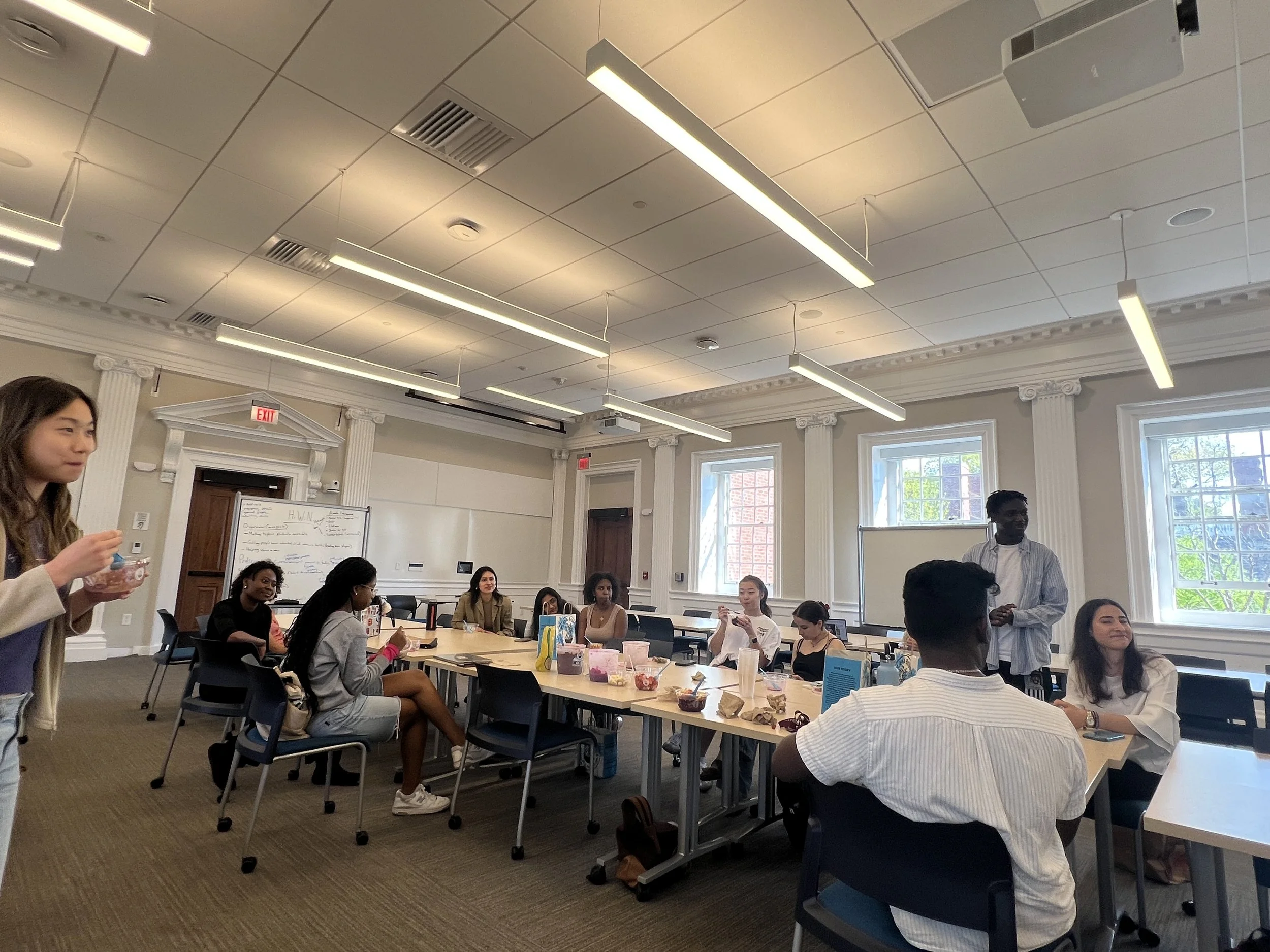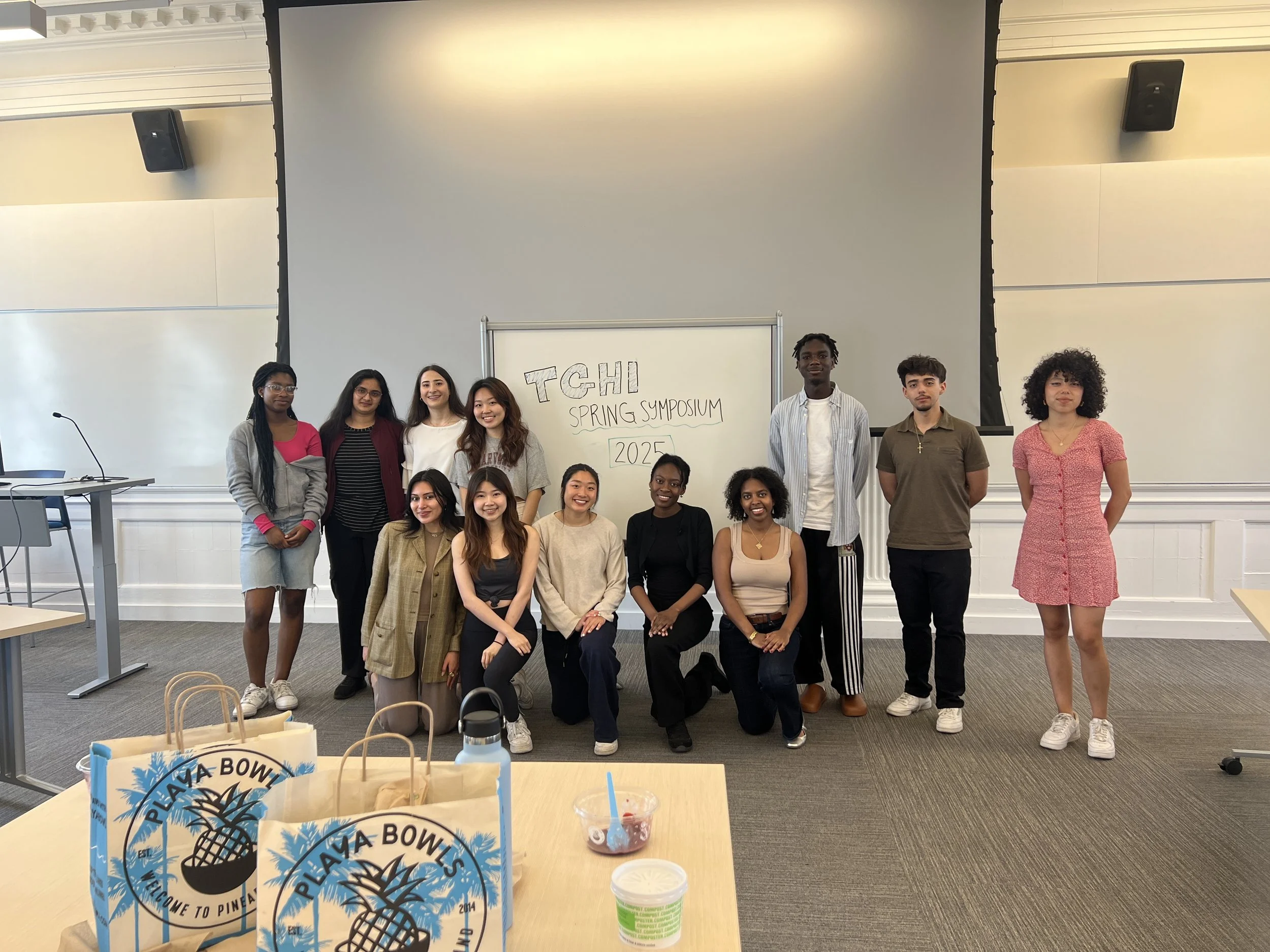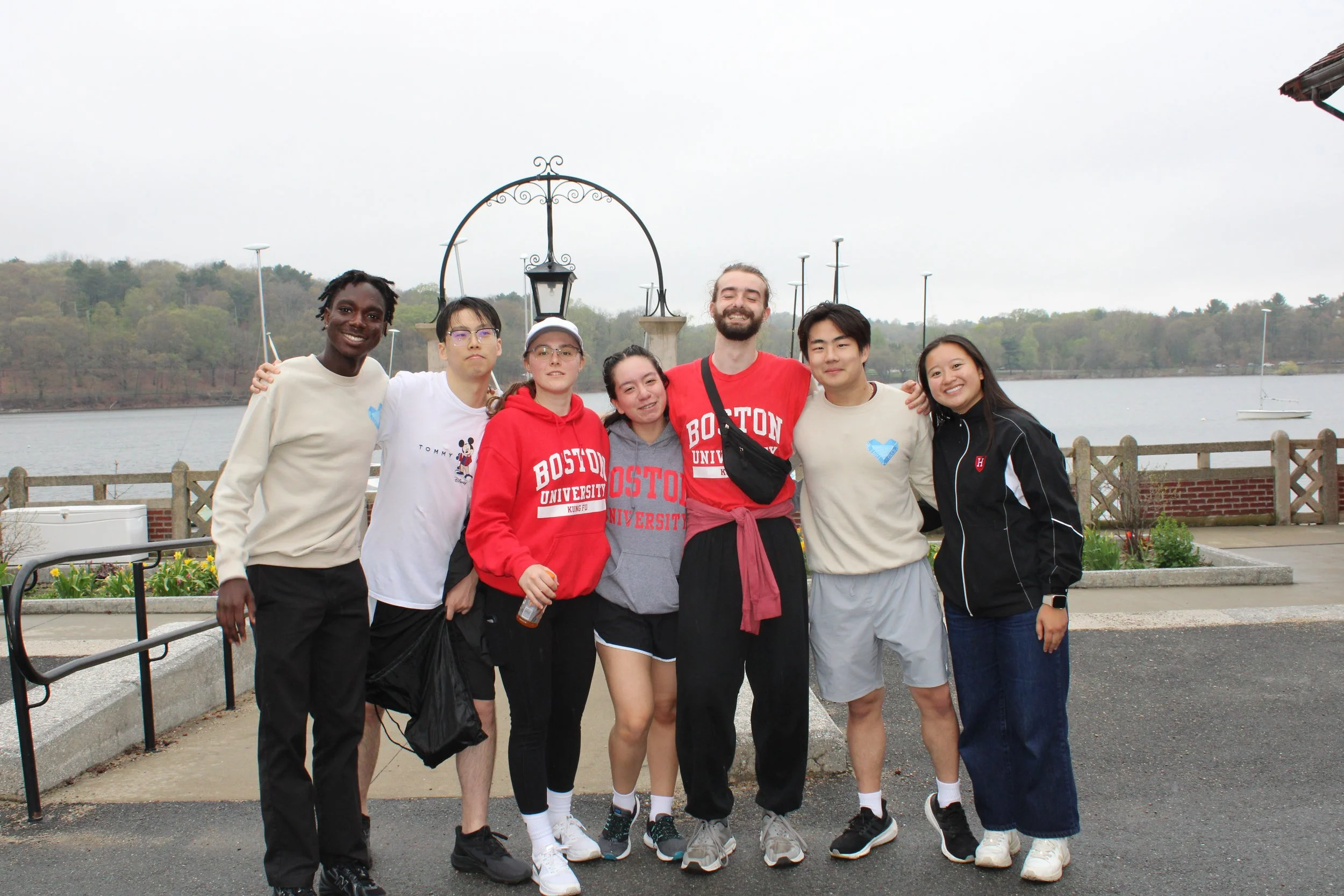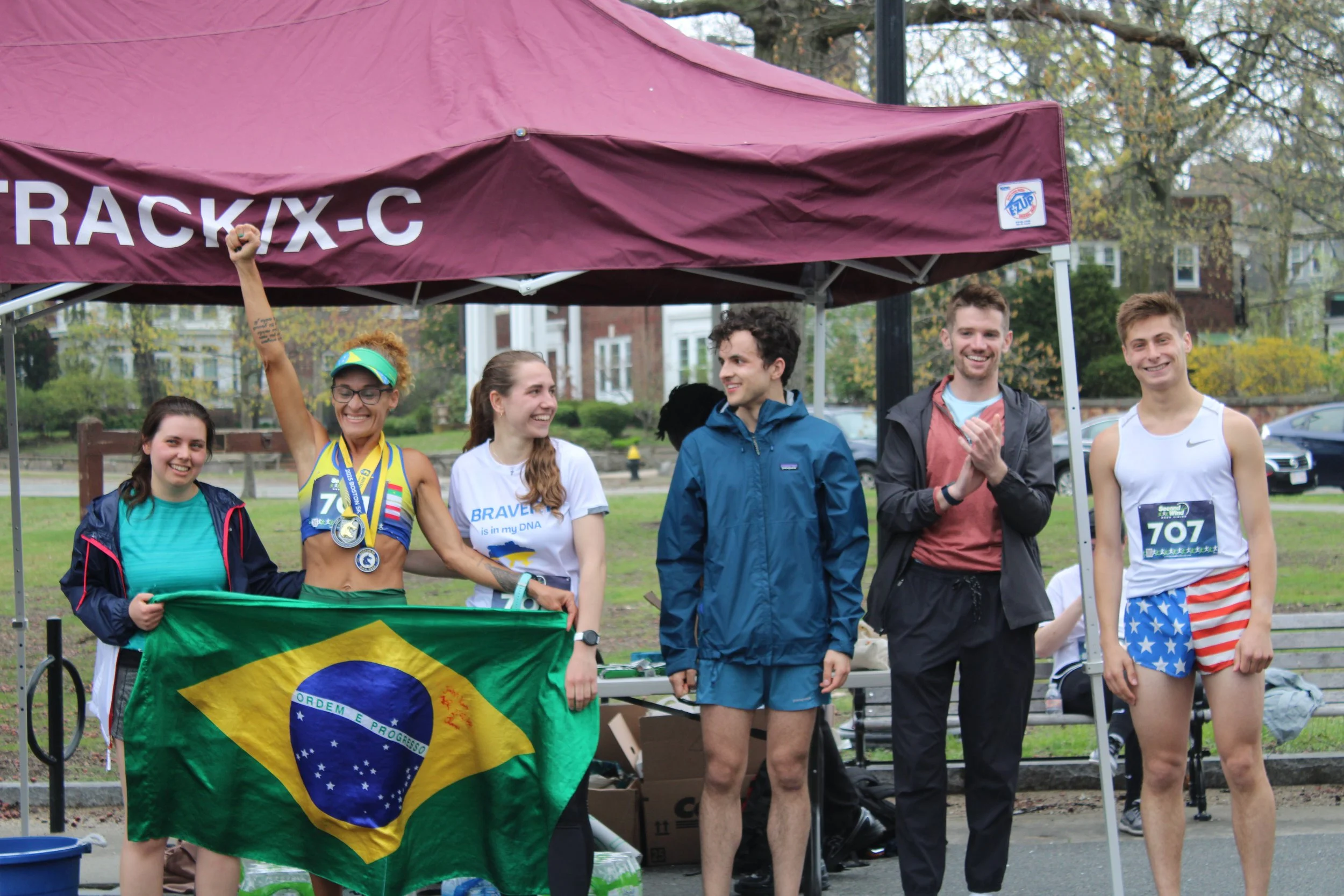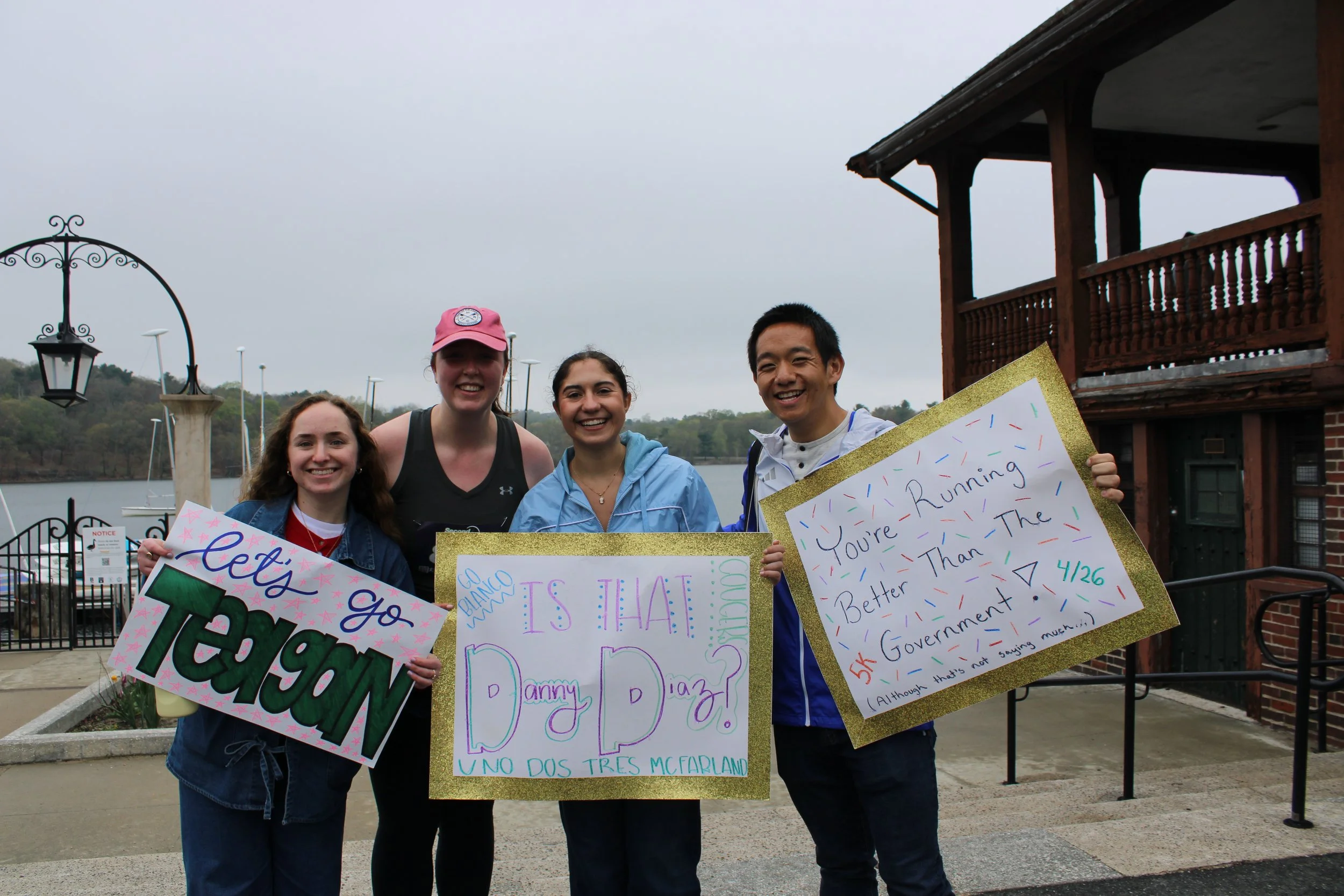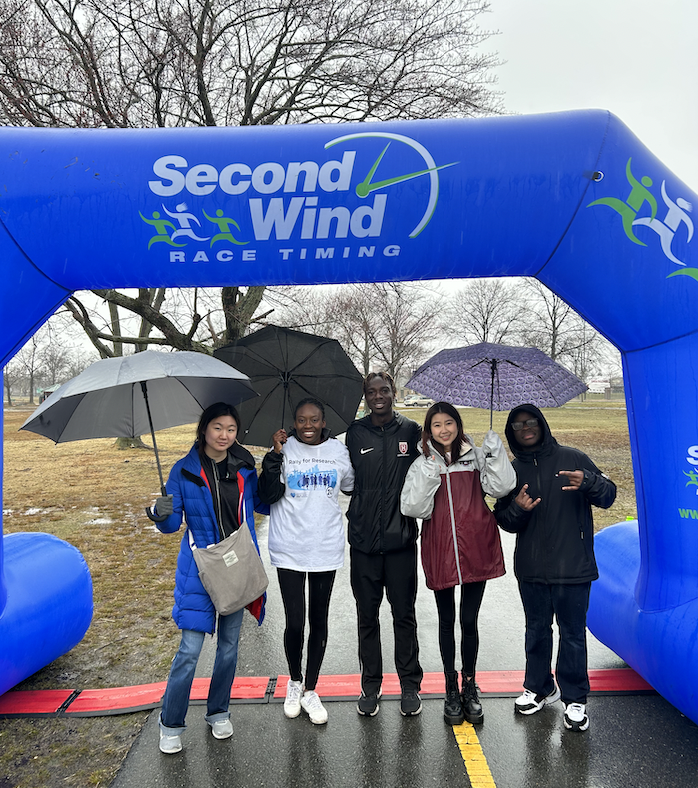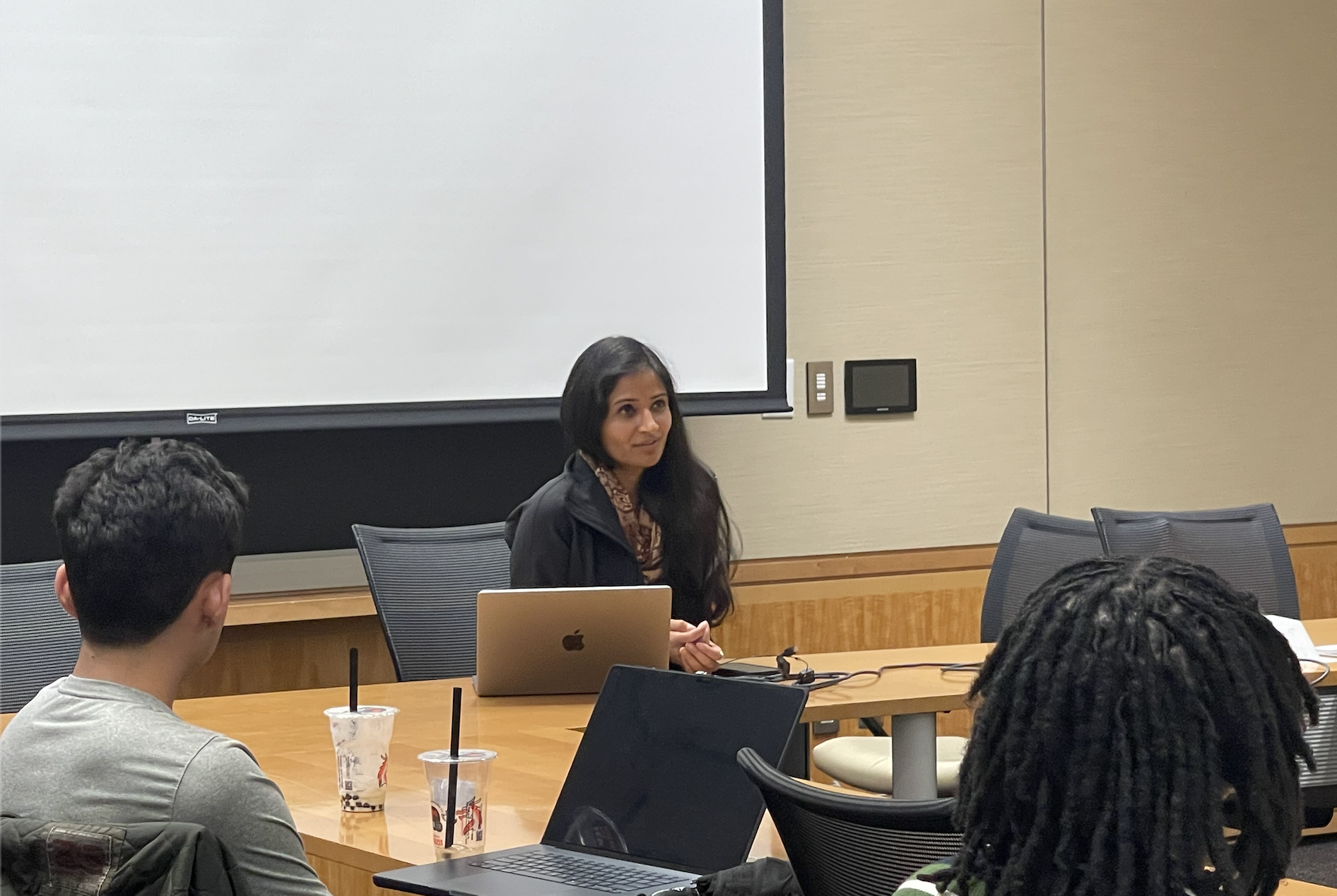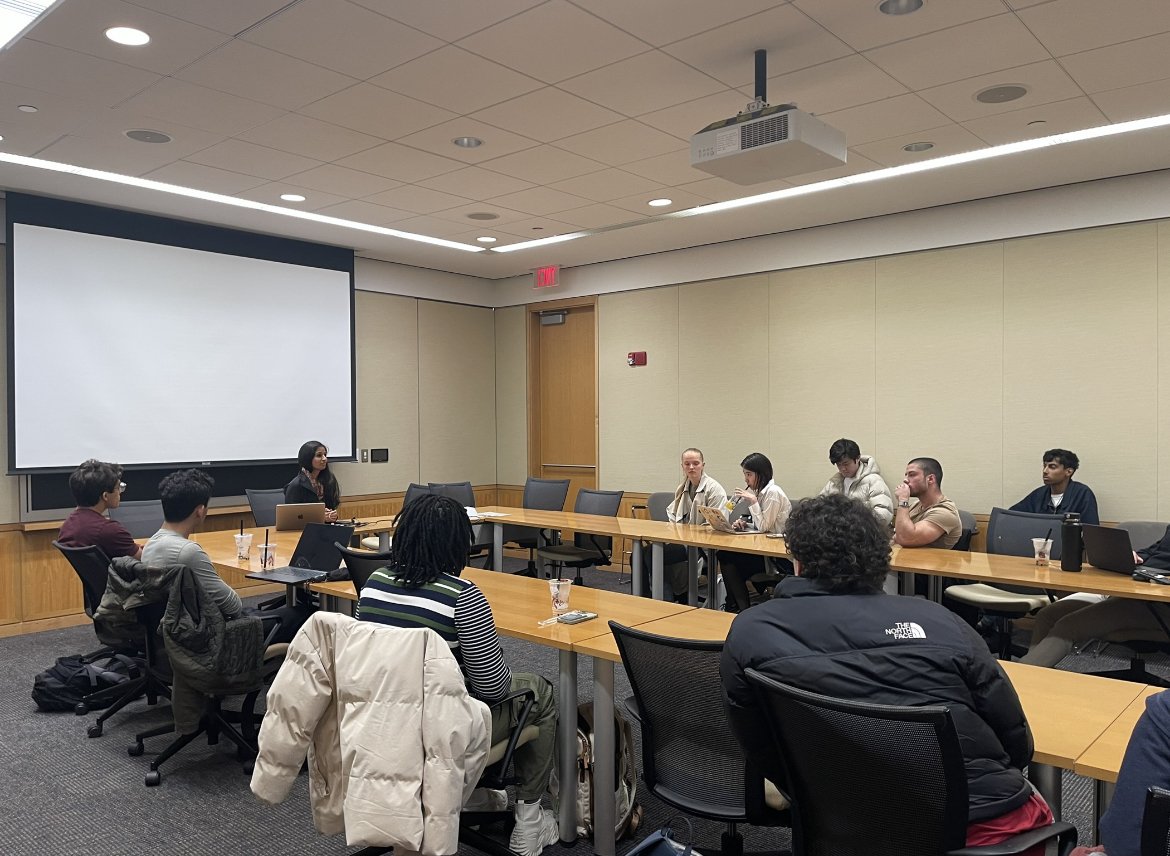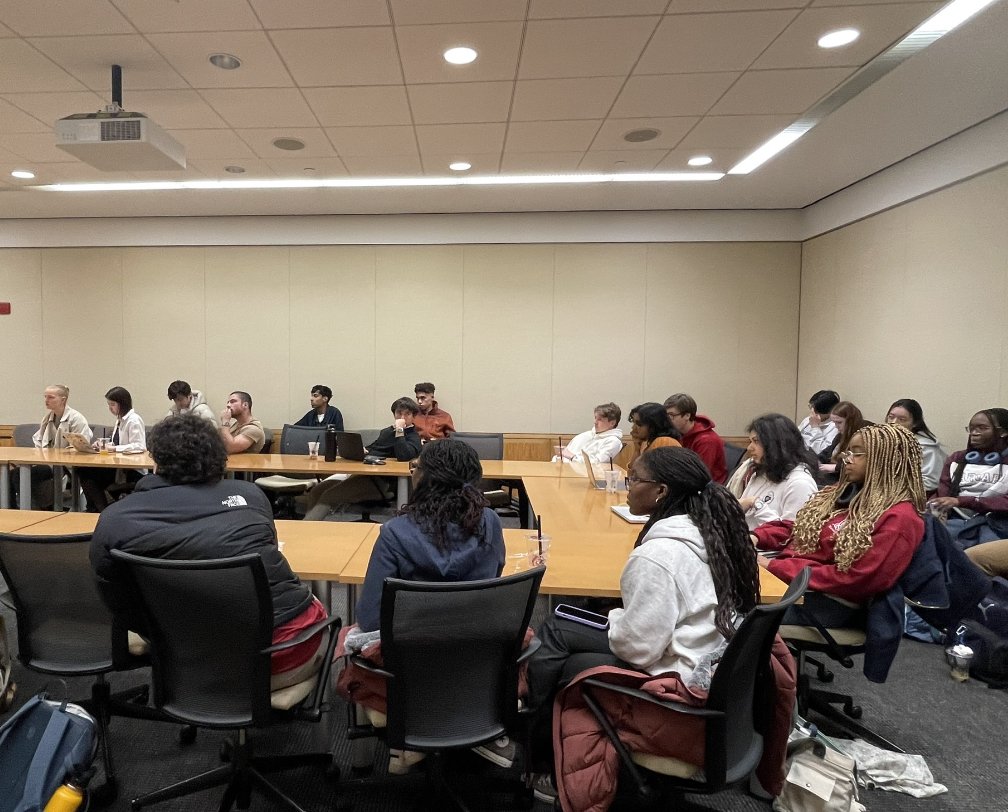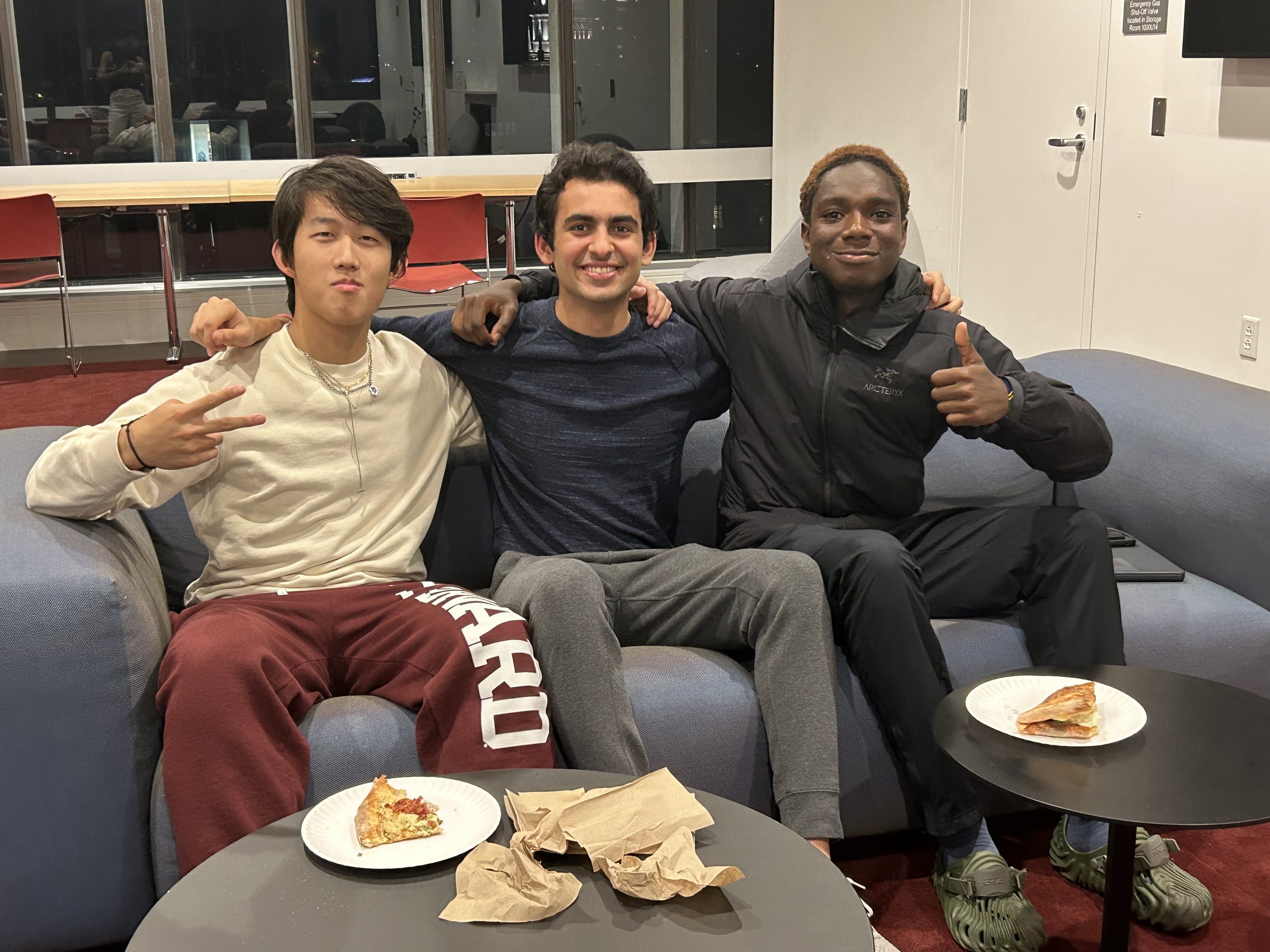
Events
UPCOMING EVENTS
UPCOMING EVENTS
Spring 2025 Events
May 5th, 2025
Time: 4 PM
Location: Harvard Hall 201
End of Semester Project Symposium
Hosted a symposium celebrate the end of the semester and hear about what our project teams have been working on this year. Had the opportunity to gather as a TGHI community and celebrate all the hard work we’ve put in with catering from Playa Bowls!
April 26, 2025
Time: 4 PM
Location: Jamaica Pond
Rally For Research 5k Run
We had the opportunity to raise raised $3,800 for cancer research and care facilities at our second annual Rally for Research. These funds went towards the American Association for Cancer Research, Mass General Cancer Center, and Christopher’s Haven Boston. Huge thank you to all the 100+ participants, spectators, and volunteers who showed up! https://runsignup.com/Race/MA/Boston/RallyforResearch
April 25th, 2025
Time: 6 PM
Location: Kirkland PDR
Dinner with Deputy Secretary of Health and Human Services Eric Hargan
Hosted a Private dinner conversation with Deputy Secretary of Health and Human Services Eric Hargan delving into a variety of topics from COVID-19 pandemic response to broader discussions on the state of global health.
November 20th, 2024
Sever Hall 203
October 24th, 2024
Lowell Screening Room
Virtual
Fall 2024 Events
CRCS X TGHI Career Pathways in Tech and Global Health
In collaboration with the Center for Research on Computation and Society (CRCS), TGHI hosted three esteemed panelists who shared their experiences and unique pathways working at the intersection of tech and global health. The panel included:
Lauren Magoun - Senior Health Strategy Specialist at Dimagi, a for-profit social enterprise that delivers open-source software technology suitable for low-resource settings and underserved communities
Francesca Dominici - Clarence James Gamble Professor of Biostatistics, Population, and Data Science and Director of the Harvard Data Science Initiative
Meredith Packer - Director of Analytical Development, at Mirai Bio, an open platform driven by machine intelligence that solves the key limitations hindering today’s genetic medicines
PAY OR DIE Screening
TGHI’s Engagement team invited filmmakers, Scott Ruderman and Rachael Dyer, for a screening of their award winning documentary PAY OR DIE (2023). PAY OR DIE addresses the examines the overwhelming financial burden faced by millions of insulin-dependent Americans with diabetes, as pharmaceutical companies drive the cost of this essential medication to unaffordable heights, all while generating record-breaking profits. After the screening, attendants had the opportunity to discuss the making of the movie and the future of dismantling insulin pricing injustice with the filmmakers.
October 17th, 2024
Shot@Life Advocacy Workshop
Attendees had the opportunity to participate in a hands-on workshop with Shot@Life, a campaign of The United Nations Foundation. Shot@Life actively works to ensure that everybody has a shot at a healthy life through their advocacy work. Attendees will receive instruction on writing letters to editors, calling congressional offices, and will come away with an actionable product that will help increase global vaccine equity. Together, we can provide more people with access to vaccines, save lives, and ensure a healthier world for all!
Spring 2024 Events
March 23, 2024
Herter Park
Rally For Research 5k Run
TGHI’s Co-Directors of Engagement organized an open 5k event for participants to run/walk in support of cancer research! With 60+ participants and donors, we raised a total of $1214 to donate to our 3 race beneficiaries: American Association for Cancer Research, Mass General Cancer Center, and Christopher’s Haven Boston. Let’s run for a world where people with cancer live better and longer lives! We appreciate everyone who supported this fundraising race and are thankful for our sponsors Playa Bowls Greater Boston and Wahlburgers for their kind support!
For more information on the schedule, please visit the link here: https://tinyurl.com/rally-for-research
March 20, 2024
CGIS S020
Biomedical Innovation Talk
We co-organized an innovation talk with the Harvard Undergraduate Engineering Society and featured Professor Shriya Srinivasan! Students enjoyed learning about her innovations in biomedical engineering and global health, as well as the importance of cultural sensitivity and building technology “with”, not merely “for”, communities affected by seeks we seek to address.
Fall 2023 Events
December 7th, 2023
Codman Academy Charter School
Presentation at Codman Academy Charter School
TGHI’s Director and Associate Directors of Engagement traveled to Codman Academy Charter School, a high school in the Boston area, to teach high school students about exciting technologies in healthcare such as drone delivery for medical supplies, surgical robots, and organoids. We hope to inspire and encourage high school students to pursue STEM degrees in college and futures in technology and healthcare.
November 7th, 2023
Smith Campus Center
Accountability in Healthcare “Hackathon”
In collaboration with the Ethics Society and Emerging Technology Group, this event provides an opportunity for students to join a mini-“hackathon-like” discussion where we analyze topics from multiple perspectives. The three topics we hope to discuss are:
1) Solutions to improve the dietary landscape for people who live in food swamps
2) To what extent should we replace healthcare workers with machines if it means cost-effectiveness? If the machine gets a diagnosis/procedure wrong, who is to blame?
3) Should differential (income-based) pricing on drugs be allowed/implemented?
September 20th, 2023
Ticknor Lounge
Is Social Media Destroying Your Sanity?
An open forum of discussion regarding social media’s impact on youth mental health and its implications.
Forum guest: Dr. Vikram Patel, Paul Farmer Professor and Chair of the Department of Global Health and Social Medicine, Harvard Medical School, and Lab Director of Harvard Medical School Mental Health For All Lab.

